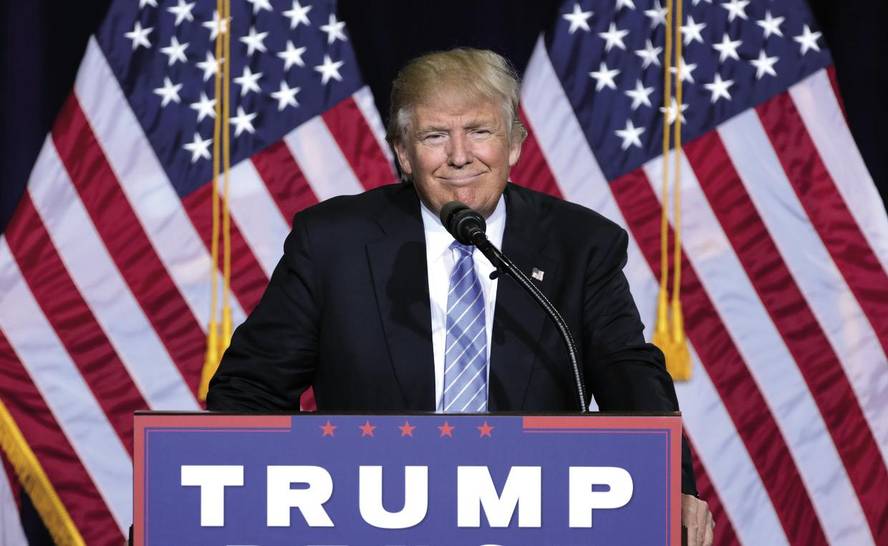Trump, elephant in the shipping
It is known that the 45th President of the United States, Donald Trump, has a very traditional view of the world. The traditional economic sectors (oil, automotive, construction, telecommunications...) are being strengthened by force. The measures he is taking in favor of the innovative and technological sectors are affecting, but this does not matter so much to Trumpi, which on the one hand is nothing technological, and on the other hand Trump considers the sectors that represent the Silicon Valley industries, which were shown against him during the election campaign as enemies.
Measures in defence of user rights
Trump has already adopted a highly controversial technology measure for the telecommunications industry and, more specifically, Internet Service Provider (ISP). Following an order signed in early April, ISPs will be able to sell their customers' browsing data to third parties. Browsing data indicates that users will be able to bombard buyers of this data with personalized advertising. And that annoying but harmless action is not the only one they could do. In short, thanks to the navigation data will know almost all of the users. It is a terrible attack on privacy.
On the other hand, although I have not yet done so when I write this article, it seems that it also intends to end net neutrality. Ajit Pai has been appointed president of the FCC, an organization that regulates network communications. During Obama's term, when the FCC adopted measures for net neutrality, Pai opposed them. Now his intention is to dismiss as soon as possible these measures in favor of net neutrality.
The principle of net neutrality establishes that information from the network must not be subject to any kind of discrimination, regardless of its content, origin, destination, platform, application or protocol, and the telecommunications company will only offer a communication channel with bandwidth contracted by the user, without being able to intervene in the information that goes through it. Without having to comply with this principle, ISPs can blackmail Internet companies (Google, Facebook or any other) by telling them that if they are not paid they will slow down their traffic, or move on to offer users service packages (in the basic pack, all slow websites; in a more advanced, some of the fastest services…). The internet we know today would change completely.
Indirectly (or not?) to Silicon Valley other measures affecting it
In principle, some decisions made by Trump with other goals will also have or can have a huge impact on Silicon Valley businesses. In January, with the excuse of preventing access to terrorism, Syria, Iran, Iraq and four other countries prevented access to the US. In March, claiming that immigrants snatch work from locals, he abandoned H1-B express visas that allow Silicon Valley to quickly hire foreign mathematicians and engineers. And it is known that Silicon Valley has for many years hired the best talents from all over the world to reach its advanced technological level. In San Francisco Bay, 36.7% of workers are foreigners. With limitations on continuing to hire them, it can be difficult to maintain competitive advantages for local tech companies.
On the other hand, the protectionist measures Trump wants to adopt to protect U.S. heavy industry. may have an undesirable effect on technology companies. It wants to put taxes and limitations on products that come especially from China to sell more U.S. products (such as Apple phones), but if all countries do the same, U.S. companies might struggle to sell off. It also aims to hinder US companies from producing in China to create jobs in the US. (again Apple is the one that will most influence), which can have an adverse effect, as it can mean an increase in costs and a negative impact on the price of products and the profitability of companies.
All these decisions and measures have led Silicon Valley to be in full war with Trump. Open letters, organization of groups, demonstrations... We will see if they serve something.
In any case, these laws and decisions will be mostly detrimental to the United States. Measures affecting local technology companies can be beneficial for companies in other countries, not only for hardware producers in the Far East, but also for local technology companies. If Hangoa loses competitiveness, it can be an opportunity to address America's absolute dominance of recent years. On the other hand, measures affecting citizens (eliminating net neutrality and allowing ISPs to sell data) only affect the local population. At least in the European Union, in August 2016, legislation was passed to protect net neutrality, and legislation to protect privacy is in force. And in Europe we don't have right-wing, racist, technophobic or puppet leaders from telecommunications companies like Trump, and it doesn't seem to emigrate... Oh, wait!







